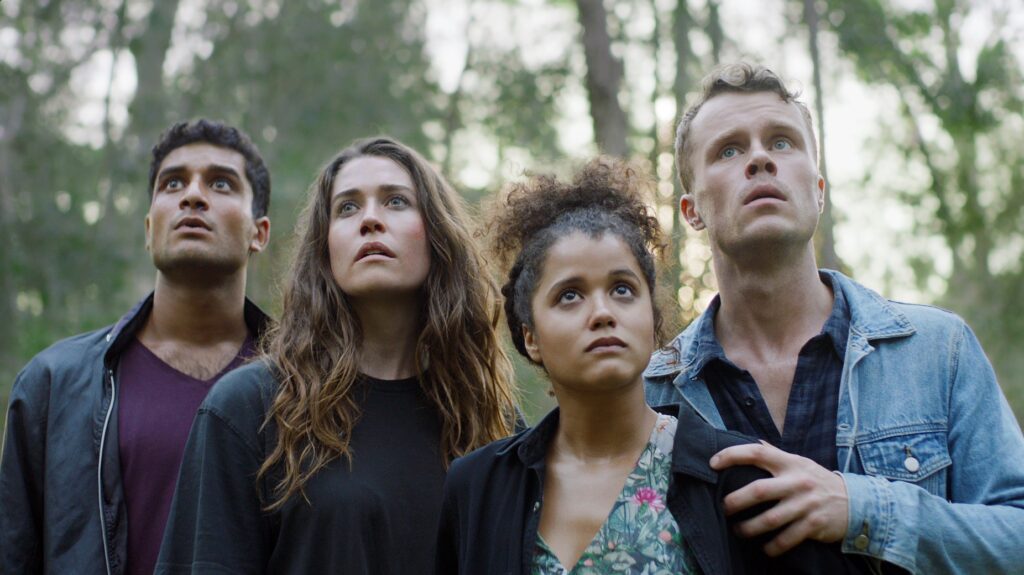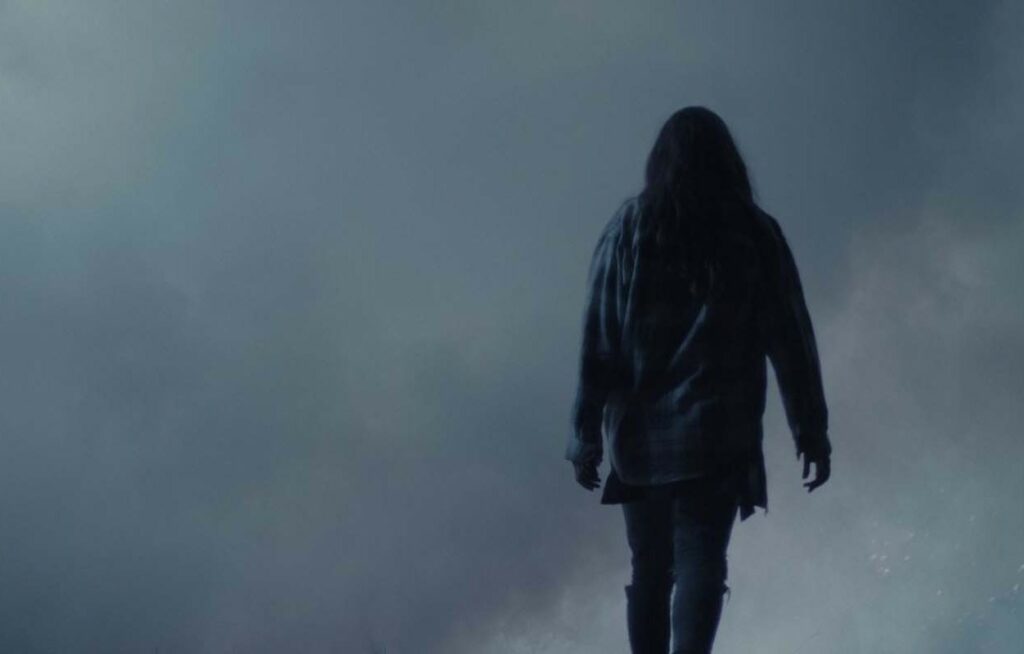Written and directed by Thomas Wilson-White in his feature debut, which premiered at BFI Flare Festival, The Greenhouse is a mystical and emotionally charged take on the complexities of grief.
Set in Australia, the film opens on Beth (Jane Watt), a quintessential eldest daughter bearing the weight of emotionally supporting her family in the wake of a devastating bereavement. The death in question is that of Lillian (Rhondda Findleton), one of the family’s two mothers, whose passing has left an unspoken distance between Beth and her three siblings.
Unlike her sister Doonie (Kirsty Marillier) and brothers Raf (Joel Horwood) and Drew (Shiv Palekar), Beth’s life has remained somewhat stagnant since her mother’s death. While her siblings have pursued careers and romantic interests, Beth still lives at home, taking on the role of emotional caretaker for her remaining Mum, Ruth (Camilla Ah Kin).

Ahead of Ruth’s nearing 60th birthday, Beth brings the family together for a weekend of celebration and remembrance; but the impending reunion forces her to face her own painful past and come to terms with her unresolved grief for her mother.
In an interesting narrative choice, the past is confronted somewhat literally through the titular greenhouse, which doubles as a time portal. On one particularly foggy and atmospheric night, Beth ventures into said greenhouse only to find that she has walked into a conversation she had with Ruth earlier that day. Initially recoiling in horror, Beth quickly senses an opportunity in the greenhouse to catch glimpses of her beloved, deceased parent, Lillian. Her desire to alleviate her own grief spurs her continued visits to the greenhouse, where she relives memories related to her happy childhood, her mother’s terminal diagnosis, and her own repressed sexuality.
As the film progresses, Beth’s growing reliance on the greenhouse and reluctance to exist solely in the present puts further strain on her relationships with her family, and her budding romance with an old flame from school, Lauren (Harriet Gordon-Anderson).
Wilson-White uses Beth’s repeated excursions to the greenhouse as a tool for exploring the complex and stunting effect that grief can have on the psyche. Beth’s inability to move on psychologically manifests tangibly through her physical stints in the past. It is an effective technique with a lot of potential, but it feels as though it could have been executed with a little more sophistication.

Much of the film is comprised of extended shots of atmospheric landscapes with very little dialogue or action. Scenes of characters staring poignantly through greenery also lends the film an ethereal quality, which ties in nicely with its genre of magical realism. In terms of cinematography, it is simply wonderful. However, one cannot help but think that some of the runtime dedicated to these moments might be better spent elsewhere. The character development – particularly between the different siblings – is somewhat lacking, and the relationship between Beth and Lauren feels painfully underwritten.
The Greenhouse is by no means a bad film, but with such a rich premise and strong cast (Watt and Findleton are particularly wonderful) it is shame that the end result feels lacklustre. The unique and moving concept at the film’s core is evidence of Wilson-White’s filmmaking vision, but sadly its potential is not quite realised in the final cut.
The Greenhouse screened as part of the BFI Flare London LGBTQ+ Film Festival. Release date TBA.
